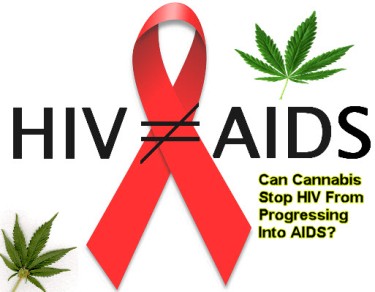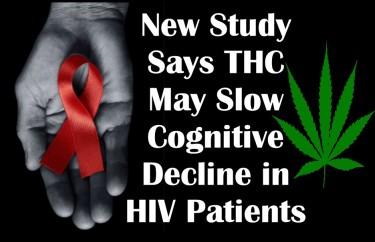
Cannabis for HIV pain relief?
According to the World Health Organization, based on 2020 data, around 37.7 million people are living with HIV worldwide.
People living with HIV need to take a variety of medications to manage their symptoms, and many of them struggle with chronic pain. HIV-related pain is common and can occur at any stage of the disease. Pain can affect any part of the body, and as the disease worsens so does the pain.
HIV-related pain can have a variety of causes, but the most common are peripheral neuropathy, abdominal pain, bone, muscle and joint pain, and headache.
That’s why a natural and safe way to manage HIV symptoms, including pain, is crucial.
NIDA grant
Earlier this month, three researchers studying at the University of Mississippi School of Pharmacy were awarded a $1.37 million grant by the National Institute on Drug Abuse (NIDA) to continue working on treating pain caused by HIV to work cannabis.
Researchers Jason Paris, Mahmoud ElSohly, and Nicole Ashpole are currently identifying the cannabinoids in the plant that are beneficial for their anti-inflammatory and analgesic properties, and lack the addictive side effects of traditional drugs and opioids. Together they have bundled know-how that gives them a competitive advantage as a research team. Paris and Ashpole work in the Department of Biomolecular Sciences and have specialties in the areas of aging, inflammation, pain and HIV. Meanwhile, ElSohly is currently the university’s director for the marijuana project, as well as a professor of pharmacy and drug delivery. He is knowledgeable about the different compounds in cannabis and their effects.
“Cannabis contains hundreds of compounds besides THC and CBD, and we don’t know much about how these compounds might affect the human body,” explains Ashpole, who is also an assistant professor of pharmacology. “By examining the effect of these compounds against HIV pain, we can gain insight into their potential benefits or risks in numerous other inflammatory disease states.”
It is hoped that their research will lead to significant improvements compared to the current treatments given to HIV patients. “Clinicians have found that HIV-positive patients use cannabis more frequently than the uninfected population,” adds Paris. “When these patients are asked why, they often say that cannabis manages their chronic pain, to which HIV predisposes them, to a greater extent than currently available therapeutics,” she says.
“Our preliminary data suggest that some of the non-psychoactive compounds in cannabis may reduce central nervous system inflammation and HIV-related pain using in vivo models.”
The University of Mississippi has long been involved in cannabis research, and the local National Center for Natural Products Research has been instrumental in standardizing marijuana products for research through their NIDA contract. “Our research capability, expertise, knowledge of cannabis chemistry and production, staff and facilities all reflect our deep commitment to excellence in cannabis research,” says ElSohly. “We are proud of the work we have done and continue to do as this research area continues to grow.”
The university has been working with marijuana since 1968, well before it was included in the Controlled Substances Act, and also before NIDA was formed to help develop its use in therapeutics and public health.
“The Faculty of Pharmacy has a long history of research related to cannabis,” said Ashpole. “I feel very fortunate to be in an environment that is recognized as a stronghold in this field and I am pleased that our ideas can further expand the research program here at the university.”
Other benefits of cannabis for HIV
The nature of HIV is that it continues to weaken the human body over time because it kills off the protective white blood cells. Without proper treatment, people with HIV eventually die because they cannot fight off the disease. An HIV-compromised immune system is vulnerable to deadly diseases such as pneumonia, meningitis, tuberculosis, encephalitis, cancer and chronic diarrhea. What’s more, HIV can even progress to AIDS, the deadliest form of HIV infection.
There are many studies documenting the benefits of cannabis for HIV patients, and the results so far have been promising.
Here’s what we know about how cannabis can help HIV patients:
Stimulating appetite: HIV patients tend to lose a significant portion of their body weight due to the loss of appetite. Tetrahydrocannabinol (THC), the psychoactive compound in the plant, is famous for its hunger-inducing properties and is commonly used by many people to promote weight gain for healing, e.g. B. in cancer patients. Additionally, a 2005 survey of 253 HIV-positive patients found that 27% of respondents used cannabis to treat these conditions, while 97% of them said it improved their appetite.
Nausea: HIV patients often experience nausea as a side effect of medications, as well as from the disease itself. Many compounds in cannabis strains are effective in treating nausea, which is why it is commonly used by those suffering from other conditions such as chemotherapy and radiation.
Peripheral Neuropathic Pain: Many HIV patients live with peripheral neuropathy, a chronic condition that results from nerve damage. The HIV virus itself can damage the motor, automatic, and sensory nerves, while drugs can make things worse. In many cases, peripheral neuropathic pain makes it difficult to achieve quality of life, but cannabis has been shown to help. In 2010, a study showed that inhaling THC was beneficial for patients to relieve pain associated with neuropathy, cancer, and other chronic as well as acute conditions.
bottom line
There is hope for HIV patients who want relief from all the pain and symptoms. Let’s hope the researchers will get timely results for all HIV patients and their families.
CANNABIS AND HIV, READ MORE…

CAN CANNABIS STOP THE PROGRESS FROM HIV TO AIDS?
OR..

DOES THC INGESTION SLOW CONGNITIVE DECISION IN HIV PATIENTS?

Post a comment: